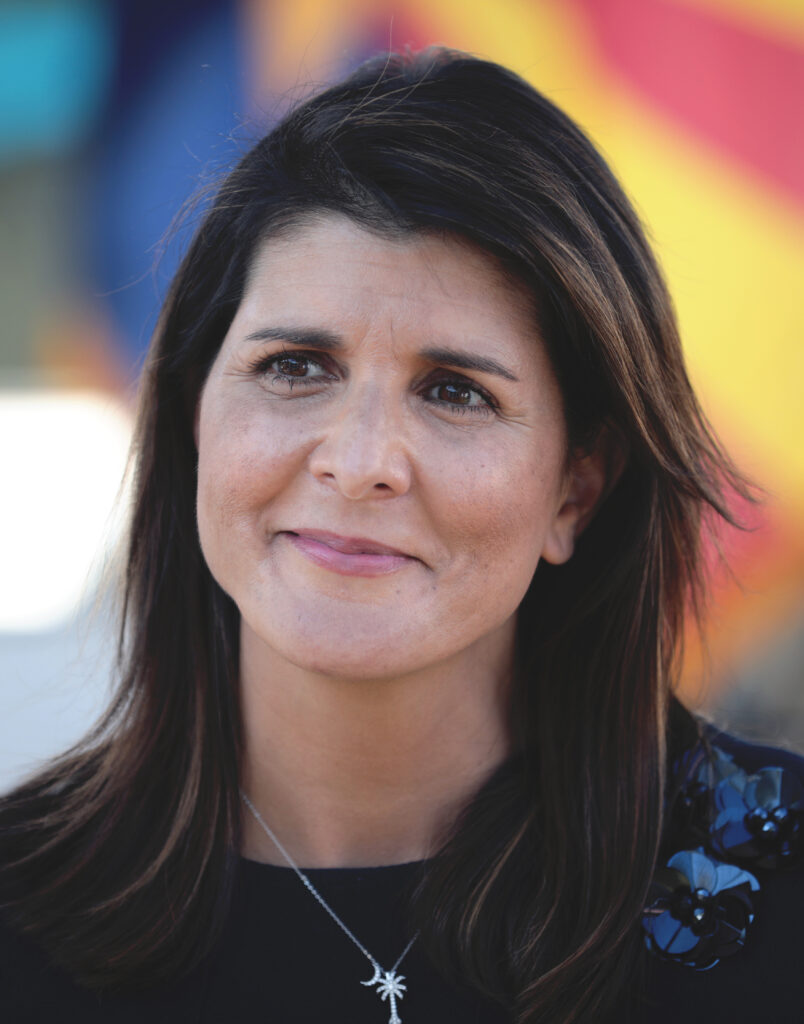Haley to Ramaswamy: ‘You have no foreign policy experience and it shows’
In the ever-dynamic realm of politics, the clash of ideas and ideologies is a constant. Recently, a fiery exchange between Haley and Ramaswamy has ignited a new debate that centers around foreign policy expertise. The verbal sparring between these figures has brought to light a crucial question: how significant is foreign policy experience in today’s world of global interdependence and rapidly changing geopolitics? Let’s delve into this topic and explore the implications of foreign policy expertise in contemporary politics.
1. The Verbal Duel Unveiled
The confrontation between Haley and Ramaswamy took center stage during a live televised debate. The topic of discussion: international relations. As the exchange escalated, Haley’s sharp assertion, “You have no foreign policy experience and it shows,” struck a nerve.
2. The Role of Foreign Policy Experience
Foreign policy decisions shape a nation’s relationships on the global stage. Advocates for experienced diplomats argue that a nuanced understanding of historical alliances, cultural sensitivities, and geopolitical intricacies is vital for effective decision-making.
3. Ramaswamy’s Counterargument
Ramaswamy, while acknowledging his lack of direct foreign policy experience, emphasized the need for fresh perspectives. He argued that the world is evolving rapidly, and rigid foreign policy traditions might hinder adaptability.
4. Navigating the Changing Geopolitical Landscape
In an era of unprecedented connectivity, foreign policy is no longer limited to bilateral relations. Issues like climate change, cybersecurity, and pandemics require collaborative global solutions. A blend of experience and innovation may be the way forward.
5. The Power of Diplomacy
Diplomacy, a cornerstone of foreign policy, is an art that transcends experience. Effective communication, negotiation, and conflict resolution skills can make up for a lack of years in the field.
6. The Impact of Technological Advancements
Technology has transformed international relations. Social media platforms enable instant diplomacy, giving leaders direct access to citizens of other nations. Experience in this realm is relatively new, putting both veterans and newcomers on a more level playing field.
7. Public Opinion and Perception
In the court of public opinion, foreign policy decisions are scrutinized intensely. Ramaswamy’s argument that fresh perspectives resonate with a younger, more globally aware audience holds merit.
8. The Balancing Act
A balance between experience and innovation seems necessary. The ability to draw from historical precedents while embracing innovative solutions can lead to effective and adaptable foreign policies.
9. A Shifting Paradigm
The nature of international relations is changing. Economic interdependence, transnational challenges, and emerging power dynamics create a need for leaders who can navigate uncharted waters.
10. The Call for Multilateralism
Complex global challenges require collaboration. Leaders need to build and nurture alliances that transcend borders. The skill lies in the ability to foster cooperation, regardless of one’s experience.
11. Haley’s Perspective
Haley’s critique stems from a belief in the value of tried-and-true foreign policy practices. Her argument rests on the foundation that experience provides insights that guide wise decisions.
12. Ramaswamy’s Vision
Ramaswamy envisions a foreign policy approach that amalgamates traditional wisdom with contemporary insights. He aims to leverage the power of youth and innovation to tackle modern challenges.
13. The Relevance of History
History often repeats itself in international relations. Those with experience can draw parallels from the past to inform present decisions, potentially averting costly mistakes.
14. The Uniqueness of Global Issues
Today’s global challenges are unparalleled. Climate change, digital warfare, and global health crises demand leaders who can think beyond conventional strategies.
15. Conclusion: Embracing Holistic Leadership
In a rapidly evolving world, the debate between Haley and Ramaswamy underscores the need for a holistic leadership approach. Foreign policy expertise remains invaluable, but so does the ability to adapt, innovate, and collaborate. The ideal leader navigates complex terrains with a blend of historical wisdom and a forward-looking vision.
FAQs
- Is foreign policy experience the sole determinant of effective global leadership? Foreign policy experience is crucial, but leadership also demands adaptability, innovation, and collaborative skills in today’s interconnected world.
- Can a leader without foreign policy experience make informed decisions? Yes, if they are open to learning, surround themselves with knowledgeable advisors, and possess strong analytical skills.
- What role does public perception play in shaping foreign policy decisions? Public perception can influence the acceptability of foreign policy decisions. Leaders often need to balance public sentiment with national interests.
- How has technology transformed traditional diplomacy? Technology has expedited diplomacy, allowing leaders to engage with global audiences directly and facilitating real-time communication between nations.
- What can nations do to address both traditional and modern global challenges? Nations should foster a leadership culture that values both experience and innovation, enabling comprehensive strategies for addressing multifaceted challenges.
Read more related blogs here.

